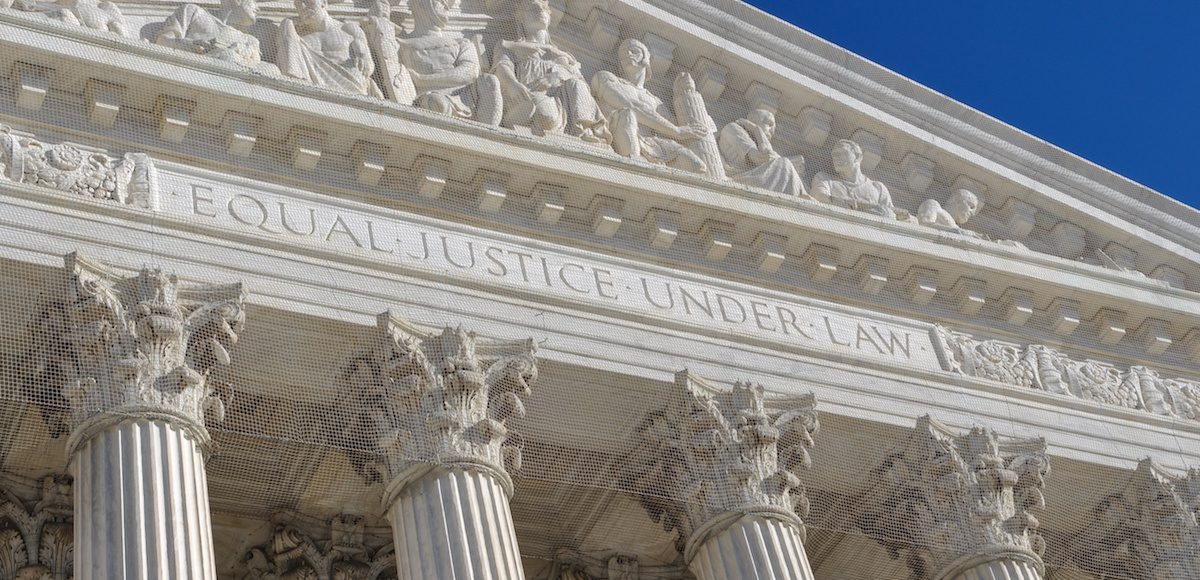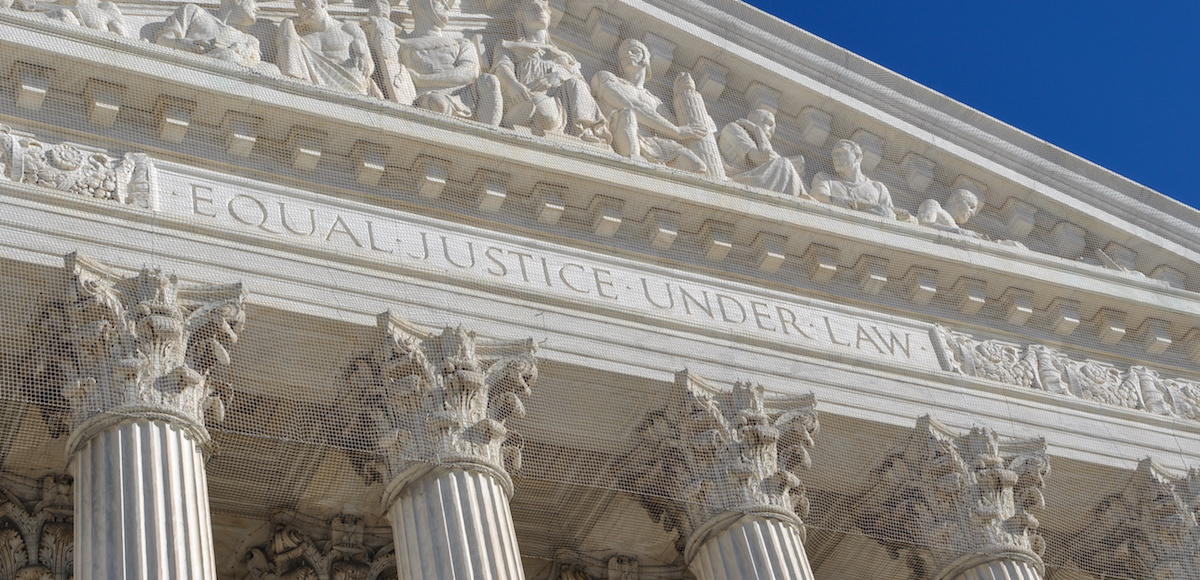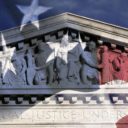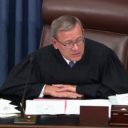
Trump Nominee Justice Neil Gorsuch Says No More Was Needed to Trigger Fourth Amendment

The Supreme Court of the United States (SCOTUS). (Photo: AdobeStock/bbourdages)
The Supreme Court ruled 5 to 4 that law enforcement must have a warrant to gather cellphone users’ location data, a big win for privacy and the 4th Amendment. The landmark decision reverses and remands a decision by the Sixth Circuit Court of Appeals.
The Court heard arguments in the case of Carpenter v. United States on November 29. It is the first case about phone location data that the Supreme Court has ruled on, making it a landmark decision regarding how law enforcement agencies can use technology to build cases against citizens.
Chief Justice John Roberts delivered the majority opinion of the Court joined by Justices Ruth Bader Ginsburg, Stephen Breyer, Sonia Sotomayor, and Elena Kagan. Justice Anthony Kennedy filed a dissent, joined by Justices Clarence Thomas and Samuel Alito.
Justice Alito also filed a dissent, which Justice Thomas joined in addition to filing a dissent of his own.
However, Justice Neil Gorsuch, who was nominated by President Donald Trump, filed a dissenting opinion on his own, which would’ve went further to protect the 4th Amendment.
“This is a groundbreaking victory for Americans’ privacy rights in the digital age,” ACLU attorney Nathan Freed Wessler, who argued the case, said in a statement. “The Supreme Court has given privacy law an update that it has badly needed for many years, finally bringing it in line with the realities of modern life. The government can no longer claim that the mere act of using technology eliminates the Fourth Amendment’s protections.”
The dispute dates back to a 2011 robbery in Detroit, after which police gathered months of phone location data from Timothy Carpenter’s phone provider. They pulled together 12,898 different locations from Mr. Carpenter, over a 127-day period. Officials identified the cellphone towers that handled his calls and traced his location during the time the alleged crimes were committed.
That information was then used against Mr. Carpenter in court.
At issue in the case was whether Mr. Carpenter had a “reasonable expectation of privacy” in the information contained in those records, or whether he had forfeited such privacy protections by voluntarily sharing the information with his cellular service provider.
In United States v. Miller (1976), and Smith v. Maryland(1979), the Supreme Court held “a person has no legitimate expectation of privacy in information he voluntarily turns over to third parties.”
A judge in the Sixth Circuit Court of Appeals ruled cellphone location data is not protected by the Fourth Amendment, thus the government didn’t require a warrant. But the Supreme Court disagreed.
“A person does not surrender all Fourth Amendment protection by venturing into the public sphere,” Chief Justice Roberts wrote in the majority opinion. “We decline to grant the state unrestricted access to a wireless carrier’s database of physical location information.”
Justice Gorsuch appeared to concur with the majority in his dissent, though he wrote that the Court only needed to apply “a more traditional Fourth Amendment approach.”
“The Fourth Amendment protects ‘the right of the people to be secure in their persons, houses, papers and effects, against unreasonable searches and seizures.’ True to those words and their original understanding, the traditional approach asked if a house, paper or effect was yours under law,” Justice Gorsuch wrote. “No more was needed to trigger the Fourth Amendment.”
Gorsuch added, “it seems to me entirely possible a person’s cell-site data could qualify as his papers or effects under existing law.”






